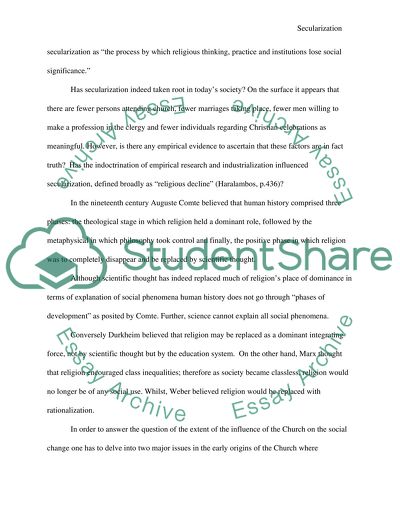Cite this document
(Changing Nature of the Secularization Debate Essay, n.d.)
Changing Nature of the Secularization Debate Essay. Retrieved from https://studentshare.org/religion-and-theology/1543174-assess-and-illustrate-the-changing-nature-of-the-secularisation-deabte
Changing Nature of the Secularization Debate Essay. Retrieved from https://studentshare.org/religion-and-theology/1543174-assess-and-illustrate-the-changing-nature-of-the-secularisation-deabte
(Changing Nature of the Secularization Debate Essay)
Changing Nature of the Secularization Debate Essay. https://studentshare.org/religion-and-theology/1543174-assess-and-illustrate-the-changing-nature-of-the-secularisation-deabte.
Changing Nature of the Secularization Debate Essay. https://studentshare.org/religion-and-theology/1543174-assess-and-illustrate-the-changing-nature-of-the-secularisation-deabte.
“Changing Nature of the Secularization Debate Essay”. https://studentshare.org/religion-and-theology/1543174-assess-and-illustrate-the-changing-nature-of-the-secularisation-deabte.


